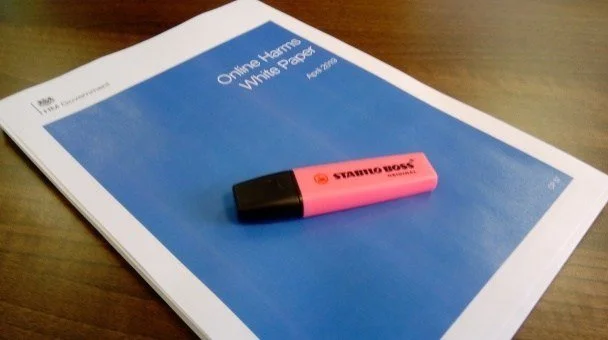English PEN and Scottish PEN call on British government to rethink its approach to Online Harms
Online Harms White Paper
English PEN and Scottish PEN have today submitted a response to the British government’s consultation on its Online Harms White Paper.
Published jointly by the Home Office and Department for Digital, Culture, Media and Sport in April 2019, the White Paper proposes new regulation to tackle ‘online harms’ ranging from terrorist content and child sex-abuse images, to phenomena such as trolling, cyberbullying and fake news. It proposes to do this by introducing a new ‘duty of care’ for online platforms such as Facebook, Twitter and Google/YouTube.
The joint response from English PEN and Scottish PEN expresses concern with the proposals, and urges the government to put free speech and human rights at the centre of any new system of regulation. In common with other civil liberties groups, the response calls on the government to adopt a regulatory approach founded on the protection of internationally recognised human rights. This would include the right to physical safety and support with mental health, but also respect freedom of expression and digital privacy rights. This rights-based approach would also set an excellent example internationally.
The response also:
Warns that confusing regulation in the UK may be copied by authoritarian regimes eager to shut down online dissent;
Expresses concern over how a new regulatory system will impact on news publishers;
Asks how regulation will affect the academic discussion of important issues such as global terrorism;
Points out that the use of algorithms to bulk moderate content could unwittingly squeeze on free speech.
In a letter to the secretaries of state, Maureen Freely and Carl MacDougall write:
The cultural sector is now worth £101.5 billion to the UK economy. Just as transport links and utilities are crucial to British industry, a wide space for freedom of expression is crucial ‘creative infrastructure.’ Often, great art and literature comes about through a radical approach: the breaking of taboos, the causing of controversy, and the pushing of boundaries. The creative sector cannot flourish, or benefit our society, by simply serving safe ‘mainstream’ interests. Diverse voices must be heard, and those working on niche and fringe interests must be supported. This cannot happen as an afterthought. Our creative industries will only succeed when freedom of expression is celebrated and encouraged everywhere. It must be at the heart of any new regulatory framework for online platforms
Read the joint English PEN and Scottish PEN consultation response online [PDF].

